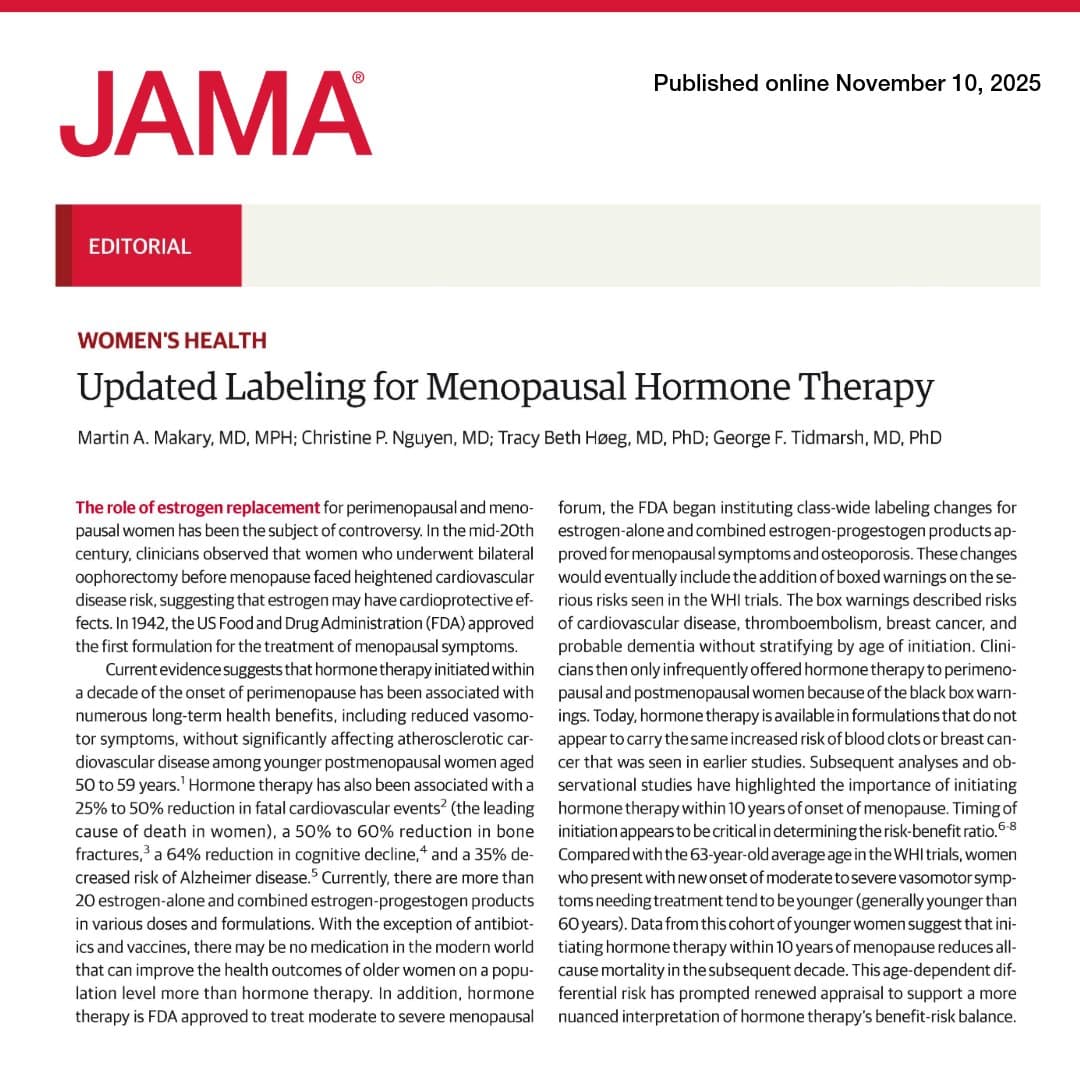FDA Removes 23-Year-Old Black Box Warnings from Menopausal Hormone Therapy

The U.S. Food and Drug Administration (FDA) has announced the removal of prominent "black box" warnings from all hormone therapy products prescribed for menopause and perimenopause symptoms. This significant reversal, coming more than two decades after the warnings were first implemented, aims to expand access to treatment for millions of women. FDA Commissioner Marty Makary stated the decision is based on a "robust review of the latest scientific evidence," emphasizing that women have been "denied or never offered hormone replacement therapy despite the profound short term and long term benefits."
The original black box warnings, the FDA's most stringent, were largely influenced by findings from the 2002 Women's Health Initiative (WHI) study, which suggested increased risks of certain cancers, heart attacks, and strokes. However, subsequent research and re-evaluation have indicated that these risks were overstated, particularly for women initiating therapy within 10 years of menopause onset or before age 60. The FDA now highlights benefits such as reduced risks of all-cause mortality, heart disease, Alzheimer's, and fractures for appropriately selected patients.
While the FDA's move is poised to increase accessibility and reduce apprehension among patients and clinicians, concerns about potential oversimplification have emerged. As Bloomberg Opinion's Lisa M. Jarvis noted in a tweet, "The FDA's move to lift black box warnings from hormone therapy may expand access for women, but overstated promises may usher in a new era of misinformation." This sentiment underscores the importance of nuanced discussions between patients and healthcare providers.
The American College of Obstetricians and Gynecologists (ACOG) welcomed the label change, stating it will "increase access to hormone therapy" and facilitate shared decision-making. However, ACOG also expressed reservations about the FDA's process, suggesting that a brief expert panel was not an adequate substitute for a full advisory committee meeting. Despite these procedural concerns, the medical community largely supports the re-evaluation of hormone therapy's risk-benefit profile.
The updated labeling will remove references to cardiovascular disease, breast cancer, and probable dementia risks, though the warning for endometrial cancer will remain for systemic estrogen-alone products. Concurrently, the FDA has approved a generic version of Premarin, a widely used hormone therapy, and a new non-hormonal treatment for menopausal symptoms, further broadening treatment options for women.